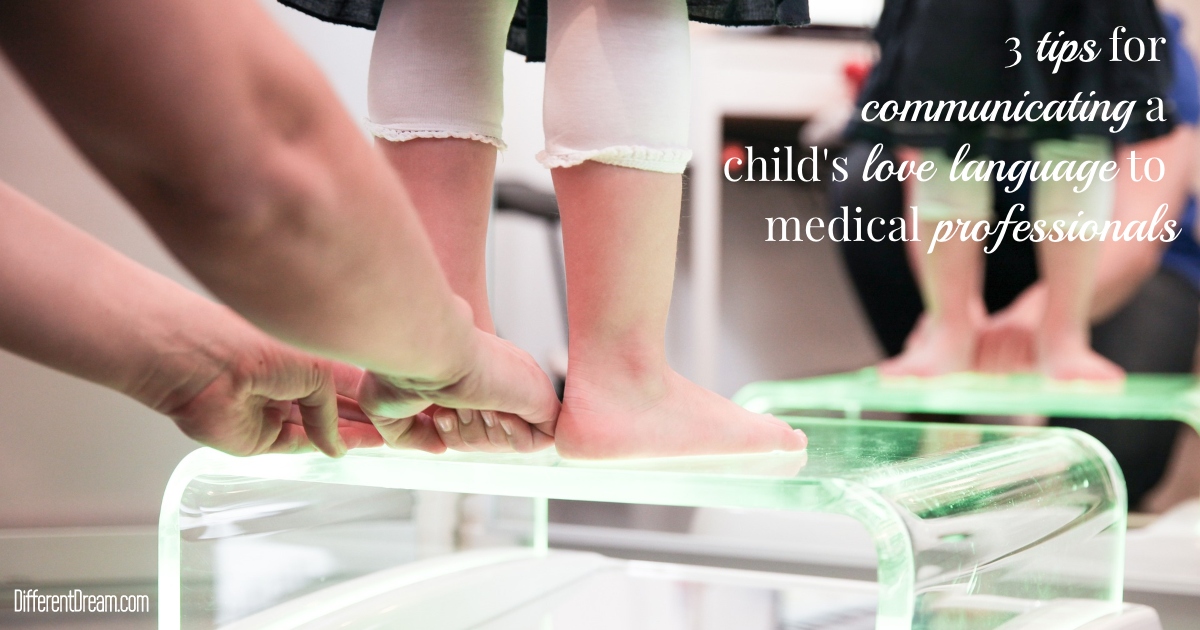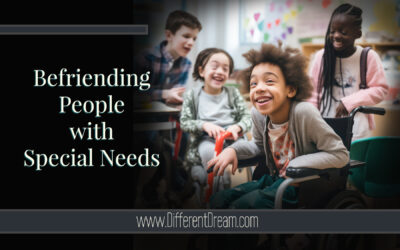Communicating Your Child’s Love Language to Medical Professionals

Communicating your child’s love language to medical professionals may be a new idea to you. I hadn’t thought about it much until I interviewed caregiving parents for Sharing Love Abundantly in Special Needs Families: The 5 Love Languages for Parents Raising Children with Disabilities.
The strategies those parents used when talking to their children’s doctors, therapists, and other professionals improved the quality of their kids’s care. We all want the services our children receive to be the best they can be, so today I’m sharing a few overarching strategies from chapter 9 of Sharing Love Abundantly in Special Needs Families today.
- Help medical professionals see your child as a person. This can be done by acquainting them with your child’s preferences–favorite foods, activities, sports and sports teams, video and board games, books, shows, movies, and of course, their primary love language.
- Use professional jargon to describe a child’s love language. Instead of using the term “physical touch,” suggest effective therapy techniques such as “deep pressure.” Instead of saying “words of affirmation,” suggest certain phrases that “motivate my child.”
- Provide professionals with a “dossier” or “fast track information sheet.” The sheet can include a child’s medical information, communicate techniques, preferences, such as primary and secondary love languages, and more. Sample forms are provided in the appendix of Sharing Love Abundantly in Special Needs Families.
Communicating your child’s love language to medical professionals can be an effective tool in a parent’s advocacy toolbox. According to the parents interviewed for Sharing Love Abundantly in Special Needs Families, it’s a simple tool to use and benefited their kids. What more could a parent want?
Links to other articles in this series:
The Love Languages and Special Needs Families: A Good Combination
Basic Love Language Concepts to Ease Stress and Increase Joy in Caregiving Families
Threats to Caregiving Marriages and How To Fight Them
Love Is a Child’s First Language
Determining the Love Language of a Child with Special Needs or a Disability
Ways to Speak Words of Affirmation and Quality Time to Kids with Special Needs
Ways To Speak Gifts and Acts of Service to Kids with Special Needs
Speaking Healthy Physical Touch to Kids with Special Needs
Using the Love Languages with Siblings of Kids with Special Needs and Disabilities
Extended Family Members Can Use the Love Languages to Encourage Caregiving Parents
Communicating Your Child’s Love Language to Educators
Do you like what you see at DifferentDream.com? You can receive more great content by subscribing to the monthly Different Dream newsletter and signing up for the daily RSS feed delivered to your email.
By Jolene
Jolene Philo is the author of the Different Dream series for parents of kids with special needs. She speaks at parenting and special needs conferences around the country. She’s also the creator and host of the Different Dream website. Sharing Love Abundantly With Special Needs Families: The 5 Love Languages® for Parents Raising Children with Disabilities, which she co-authored with Dr. Gary Chapman, was released in August of 2019 and is available at local bookstores, their bookstore website, and at Amazon.
Subscribe for Updates from Jolene
Related Posts
How Do I Teach my Kids to Interact with People Who Have Disabilities?
Jolene gives practical pointers for people who ask, “How do I teach my kids to interact with people who have disabilities?”
Therapy is Not a Child’s Love Language.
Guest blogger Heather Braucher explains how she learned that therapy is not a child’s love language, even if it is a necessity.
Making an Autumn Sensory Fidget Box
Guest blogger Mark Arnold takes a journey to the magical world of making an autumn sensory box for his son with special needs.






0 Comments